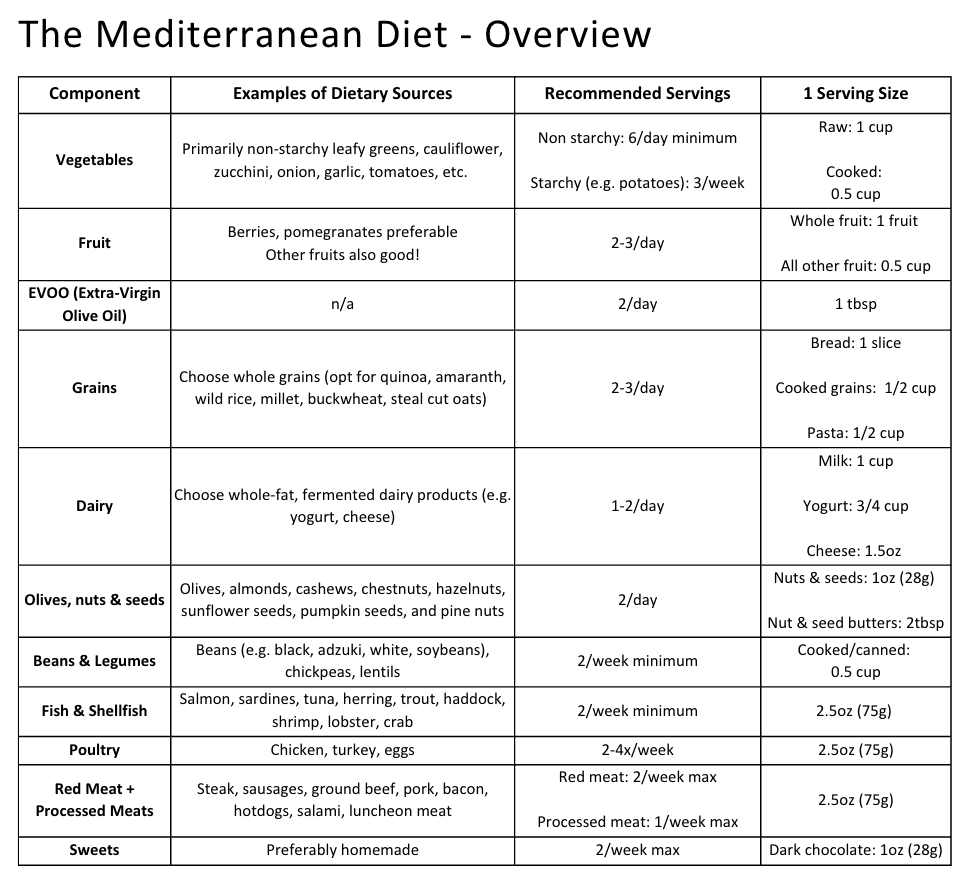Dr. Jaime Enns, ND
Why Nutrition Matters for Fertility
When research is conducted in the fertility space, we are often examining surrogate markers of fertility. A surrogate marker in fertility includes factors such as a reduction in the hormone FSH and a higher number of eggs retrieved during an IVF cycle. While this research is important and these surrogate markers do have an impact on fertility outcomes, the ultimate goal when it comes to fertility is the birth of a healthy baby. When we research the impact of nutrition on fertility, we see an impact on pregnancy rates and live birth rates, which means it impacts the number of healthy babies born to parents!
Nutrition has a profound impact on various factors involved in fertility, including but not limited to: ovulation regularity, egg quality, sperm quality, hormone balance, uterine lining, IVF outcomes, and more. There are many known and proposed mechanisms through which this occurs, some of which include reducing inflammation, supporting nutrient levels, achieving optimal BMI, regulating blood sugar, optimizing the gut and reproductive microbiome, supporting blood flow, and managing stress levels.
The Mediterranean Diet
The Mediterranean diet is the most well-researched dietary pattern when it comes to fertility outcomes, for both male and female fertility. It is based on a whole-foods approach, emphasizing vegetables and fruits, healthy fats, fish and seafood along with movement and community.
Multiple studies have found that high adherence to the Mediterranean diet is associated with a significantly improved pregnancy and live birth rate.1,2 A literature review of the topic reported an RR of 2.64,3 meaning there was a 2.64 times increased rate of live births in females who had a high adherence to the Mediterranean diet compared to those with a low adherence. There is also evidence that the Mediterranean diet can positively impact male fertility via sperm quality. A meta-analysis reported that high adherence to the Mediterranean diet was associated with improved sperm count, improved total and progressive sperm motility, and improved sperm morphology. 4,5
The Mediterranean diet emphasizes consuming whole foods, with special focus on healthy fats, fish and seafood, and plant-based protein sources. Below you will find an outline of the Mediterranean diet, including the recommended number of servings per food group.

The Source of Your Protein Matters
While consuming adequate protein is crucial when it comes to optimizing fertility, the source of your protein is also important.
Plant-based protein: The Mediterranean diet emphasizes plant-based protein, such as chickpeas, beans, lentils, tofu, Greek yogurt, and cottage cheese. A research study reported that those with the highest intake of animal protein had a 39% increased risk of ovulatory infertility, and that replacing just 5% of animal-based protein with plant-based protein can lower this risk by approximately 50%.6 Practically, this means that consuming animal protein such as chicken, eggs, fish and seafood, and occasionally red meat, can help support your protein goals, but adding in sources of plant-based protein to your diet can help to optimize fertility outcomes. Below are some practical tips for incorporating more plant-based protein into your diet.
- Prep a bean salad for lunch each week to consume with lunches
- Add a can of lentils to your ground beef/ground chicken
- Add cottage cheese to eggs while cooking
- Opt for Greek yogurt over regular yogurt for added plant-based protein
Soy-based Protein: Another source of plant-based protein is soy-based protein, which includes tofu, tempeh, edamame beans, etc. Despite popular belief, soy protein is a beneficial protein source for both females and males. A study of 315 women undergoing fertility treatments reported a correlation between higher consumption of soy and increased live birth rates.7 The relationship between male fertility and soy intake is not as clear, however, one study found no relationship between soy intake and male sex hormones, supporting the idea that soy does not harm male fertility.8
Fish and Seafood as Protein: An important aspect of the Mediterranean diet is healthy fats, of which omega-3s fatty acids are one of the top sources. Omega-3’s are known for their anti-inflammatory benefits, which support both female and male fertility. Replacing other sources of animal protein with fish at least 2x/week has shown a 1.54 times increase in live births, with this number being slightly higher when replacing processed meat specifically.9 However, when it comes to fish intake, we must also consider the risk of mercury contamination. High levels of mercury exposure in utero may be associated with health concerns in the fetus.10 The most common dietary mercury exposure comes from fish and seafood, with larger species typically containing higher levels. To limit mercury exposure while also consuming omega-3s through fish, opt for salmon, anchovies, sardines and trout.
The Importance of Balancing Blood Sugar
Blood sugar regulation plays a role in fertility outcomes for both males and females, with elevated levels being associated with increased rates of infertility. A study of 1578 women found that for each 1% increase in HbA1c (a measure of average blood sugar), there was a 1.4x increased rate of infertility, even when controlling for BMI.11 In terms of sperm health, a systematic review found that hyperglycemia – i.e. elevated blood sugar – negatively impacts sperm function with potential mechanisms including oxidative stress and DNA damage.12
Our blood sugar is impacted not only by what we eat, but also how much we eat, the timing of our meals, our muscle mass, and our exercise levels. Below you will find some practical nutrition tips that can be used to help regulate your blood sugar.
- Consume adequate protein throughout the day. For most moderately active individuals, a goal of consuming 1.2-1.7g of protein per kg of body weight is considered ideal; however, exact recommendations may vary based on activity level and other health concerns.
- Consume a source of healthy fats with each meal. Examples include extra-virgin olive oil, olives, avocado, oily fish (e.g. salmon, sardines, anchovies), Greek yogurt, hemp hearts, etc.
- Aim for half of your plate/meal to be roughage (i.e. veggies, greens, fruits, legumes). This will help to reach your fibre and micronutrient goals.
- Avoid under- and over-eating. Aim to fuel your body appropriately based on exercise level and current body composition.
- Consume 3 complete meals per day, about 4-6 hours apart, with minimal snacking. This helps your body to maintain balanced blood sugar throughout the day and support insulin sensitivity. If you find yourself hungry between meals, try to eat more protein, healthy fats, and fibre at mealtimes.
- Build muscle mass and move your body frequently. While not nutrition recommendations, these recommendations are also crucial for managing blood sugar levels.
Putting it all together
When it comes to optimizing nutrition, it can become overwhelming. When working on fertility health, patients are often looking for a meal plan for support. While meal plans have their place, it is important to remember that the principles of the Mediterranean diet can be applied in many ways and that there is no one “correct” way of eating. It is important to keep in mind that consistency is more important than perfection, and that we can build these habits step-by-step over time. Take stock of what your current nutrition looks like and focus on one small goal at a time. Wherever you are in your fertility journey, nutrition will support you, and now is the perfect time to start.

Dr. Jaime Enns is a Naturopathic Doctor specializing in compassionate, evidence-informed fertility care. She offers personalized treatment plans integrating advanced diagnostics, lifestyle optimization, targeted supplementation, and acupuncture to address root causes and support conception. Dr. Enns holds a Doctor of Naturopathy from the Canadian College of Naturopathic Medicine and a Bachelor of Science in Kinesiology from Queen’s University, with additional certifications in IV therapy, vitamin injections, and therapeutic prescribing. https://www.drjaimeennsnd.com/
References
- Kellow, N.J., Le Cerf, J., Horta, F., Dordevic, A.L., and Bennett, C.J. (2022). A study in Advances in Nutrition found that dietary patterns significantly affect clinical pregnancy and live birth outcomes in assisted reproductive technology.
- Martín-Manchado, L., Sánchez-Sansegundo, M., Moya-Yeste, A.M., Hurtado-Sánchez, J.A., Tuells, J., and Zaragoza-Martí, A. (2025). A review in the European Journal of Public Health links Mediterranean diet adherence with improved assisted reproductive outcomes.
- Baroutis, D., Kalampokas, T., Katsianou, E., Psarris, A., Daskalakis, G., Panoulis, K., and Eleftheriades, M. (2024). Nutrients published a review highlighting the Mediterranean diet’s role in assisted reproduction.
- Agarwal, R., Salas-Salvadó, J., Davila-Cordova, E., Shyam, S., Fernández de la Puente, M., Azurmendi, M.P., Babio, N., and Salas-Huetos, A. (2025). A review in Advances in Nutrition explored how the Mediterranean diet affects semen quality and assisted reproductive outcomes in men.
- Petre, G.C., Francini-Pesenti, F., De Toni, L., Di Nisio, A., Mingardi, A., Cosci, I., Passerin, N., Ferlin, A., and Garolla, A. (2025). A study in Nutrients examined the impact of the Mediterranean diet and ultra-processed foods on sperm quality.
- Chavarro, J.E., Rich-Edwards, J.W., Rosner, B.A., and Willett, W.C. (2008). Research in the American Journal of Obstetrics and Gynecology linked higher protein intake to ovulatory infertility.
- Vanegas, J.C., Afeiche, M.C., Gaskins, A.J., Mínguez-Alarcón, L., Williams, P.L., Wright, D.L., Toth, T.L., Hauser, R., and Chavarro, J.E. (2015). A study in Fertility and Sterility reported on soy food intake and IVF outcomes in women.
- Reed, K.E., Camargo, J., Hamilton-Reeves, J., Kurzer, M., and Messina, M. (2021). A meta-analysis in Reproductive Toxicology found no link between soy or isoflavone intake and male reproductive hormones.
- Nassan, F.L., Chiu, Y.H., Vanegas, J.C., Gaskins, A.J., Williams, P.L., Ford, J.B., Attaman, J., Hauser, R., and Chavarro, J.E. (2018). The American Journal of Clinical Nutrition explored protein-rich food intake and IVF success rates.
- O’Connor, L.E., Spill, M.K., Trivedi, R., Saha, S., Thoerig, R.C., Foster, M., and MacFarlane, A.J. (2025). A review in Environmental Research summarized findings on mercury exposure and childhood health outcomes.
- Liao, C.C., Lee, C.I., Liao, K.R., and Li, J.M. (2024). Research in the International Journal of Molecular Sciences examined the relationship between glycated hemoglobin levels and female infertility.
- Maresch, C.C., Stute, D.C., Alves, M.G., Oliveira, P.F., de Kretser, D.M., and Linn, T. (2018). A systematic review in Human Reproduction Update detailed how diabetes-induced hyperglycemia impairs male fertility.




